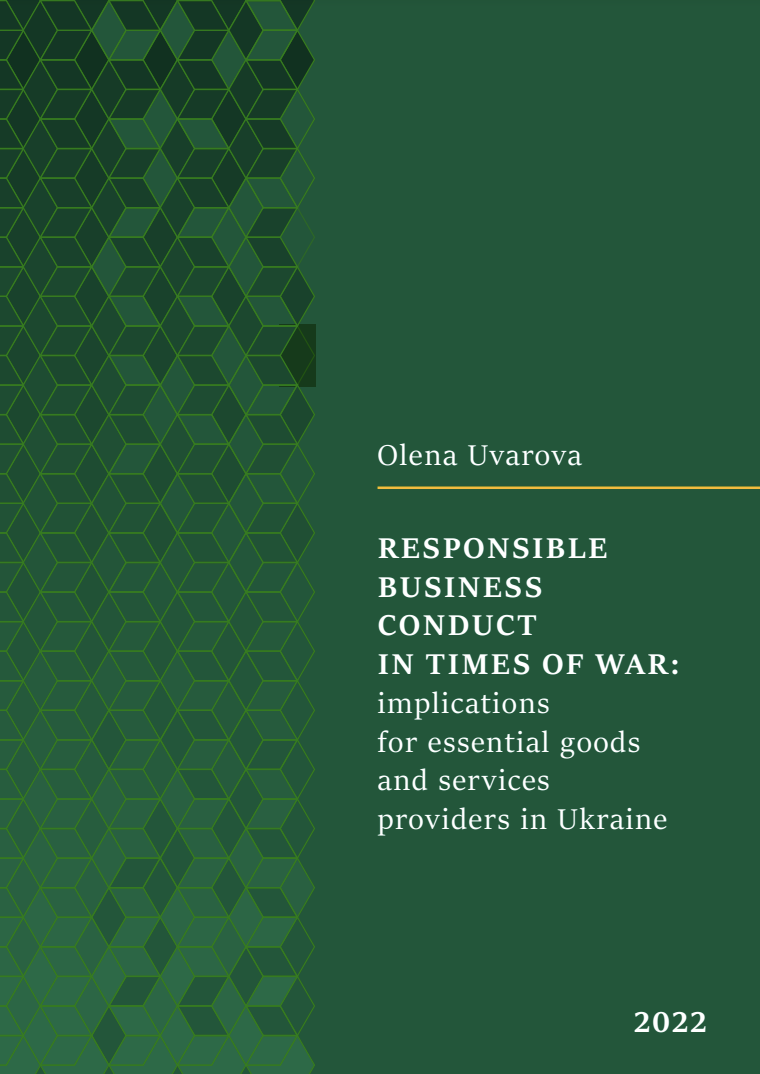Access to essential goods and services during war is critical. In many cases, people’s lives depend on it. The subject introduces many complex questions. What goods and services are essential in the war? Is it the exclusive responsibility of the state to provide access to these services? What role do private providers of essential services and goods play? How can employees’ safety be balanced with the need to ensure access to essential goods and services? Do private providers have broad discretion in deciding to stop their work, regardless of the motive for such a decision, and regardless of the degree of influence of such a decision on the local population? What is the impact of the business operating environment (ongoing active conflict; occupied territory; other conflict-affected areas) on the provision of essential goods and services? Does the corporate responsibility to respect human rights include all possible efforts of a company to prevent or mitigate the negative impact of conflict on human rights?

